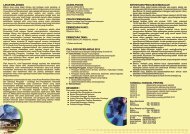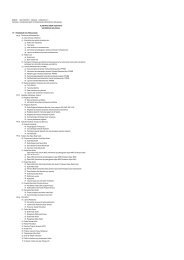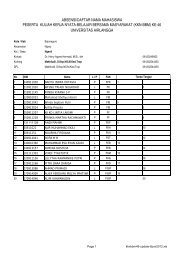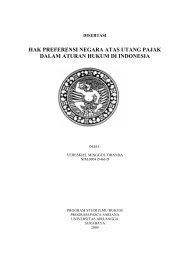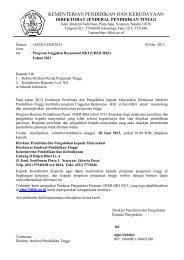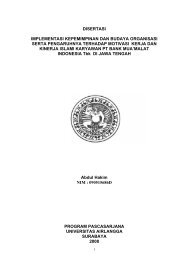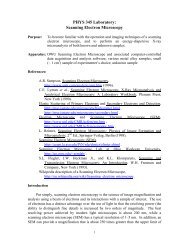Nietzsche's Naturalistic Ethics - UNAIR | E-Book Collection
Nietzsche's Naturalistic Ethics - UNAIR | E-Book Collection
Nietzsche's Naturalistic Ethics - UNAIR | E-Book Collection
Create successful ePaper yourself
Turn your PDF publications into a flip-book with our unique Google optimized e-Paper software.
of physiological and mental Wohlgeratenheit – well-turned-out-ness. 29 The unified agent, on thisaccount, is physiologically and mentally balanced, stable, and well-rounded, like Goethe andNietzsche in the passages quoted in section 2. Unity of agency is captured in terms of health andsanity. Wohlgeratenheit is the opposing notion to the character shaped by guilt and ressentiment: theperson who turned out well is not at odds with the world in the manner of that character, but succeedsin resting in himself and finding strength in himself. Nietzsche’s ideal of unity of agency takesseriously his account of the mind developed in section 2. An ideal of unity of agency as deliberativecoherence is, for Nietzsche, “too superficial” by taking seriously only the conscious and thus arelatively unimportant level of the mind, and even that in an unsatisfactory way.One reason why the person of Wohlgeratenheit succeeds in obtaining peace of mind isbecause he is a fatalist: not a fatalist whom this doctrine commits to inactivity, but one who endorsesa “joyous and trusting fatalism,” for which Goethe is praised later in the passage quoted in section2 from TI, Skirmishes, 49. Goethe, who was not only creative, but created himself drawing on asplendid range of sources, who was a healthy, well-rounded, stable and strong personality capableof resting in himself, is also applauded for his ability to find strength through comprehending andappreciating his place within the causal web of the universe that relieves him of any thoughts ofresponsibility, blame, and guilt. 30 To the extent that Nietzsche’s ideal of unity is fatalistic, it is aimed29 Thiele (1990), p 61 also discusses why consistency is not a virtue for Nietzsche.30 Nietzsche uses the term “fatalist” in a sense different from the fatalism of Greekmythology, where some event of the future is fixed and will come true, no matter what one does(but one has perfect freedom to try to change this: it is just bound to fail). Nietzsche’s fatalism isequivalent to determinism. I have argued elsewhere for the connection between well-turned-outnessand fatalism, and also explicated Nietzsche’s fatalism more carefully (Risse (2003); see alsoLeiter (1998)), so I restrict myself to suggesting that being a fatalist helps the person ofWohlgeratenheit to be free at least from guilt. Just like Homeric Greeks in GM II, 23 blame thegods, those agents blame the world.33




